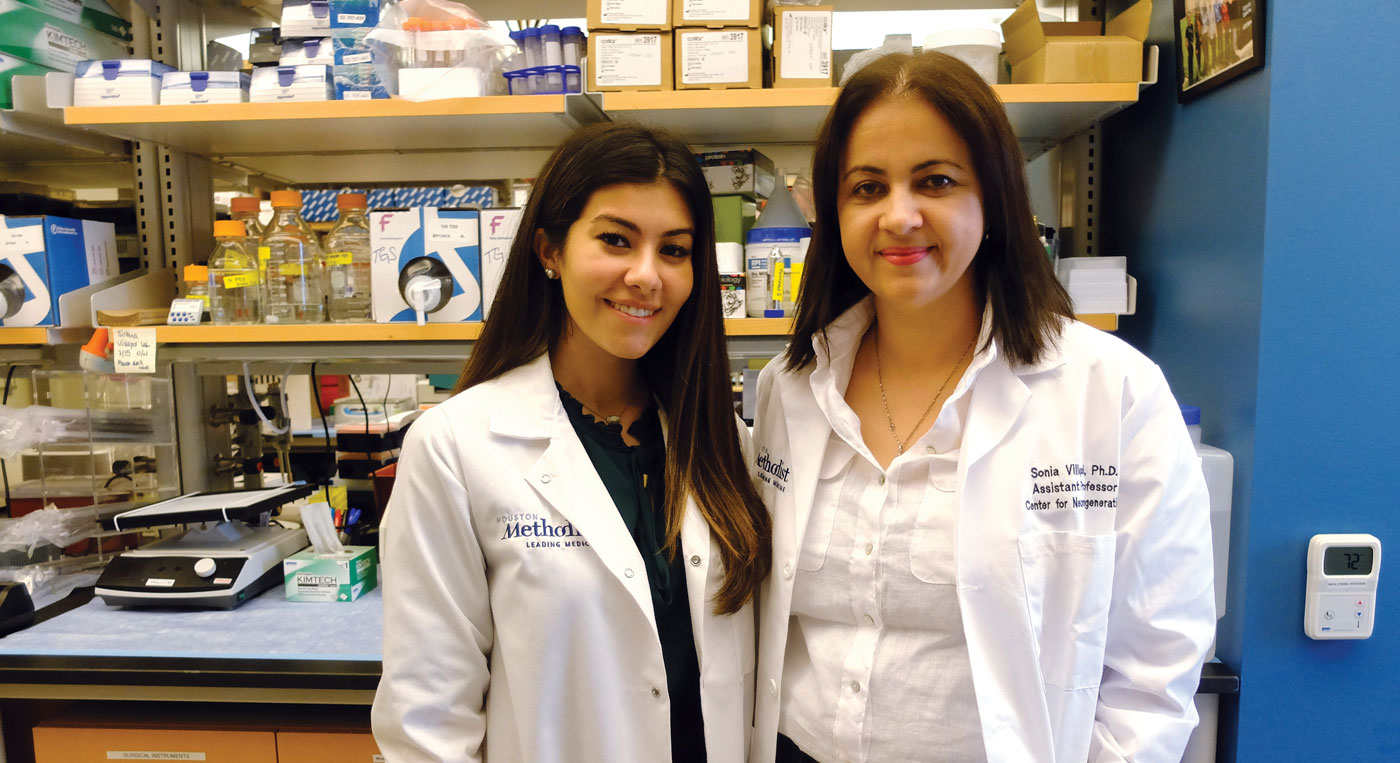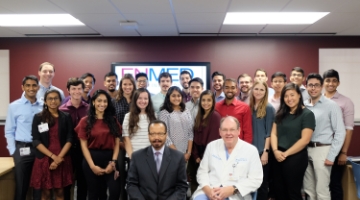Science in Service
of
Medicine
President's Letter
Metrics 2019
Cycle of a Cure
Discovery to Clinic


Introduction

Precision Medicine


Introduction

Tracing Tau to Tackle Alzheimer's Disease

Translational Imaging Center Revamps for Revolutionary 7T MRI

Hope for Slowing ALS

The Heart of Progress: Innovative Valves Create a Legacy for the Future

Test-Driving Carbon Fiber Materials in Space

Lab-on-a-chip Shines Light on Bystander Effect

Creating an Antibody to Fight Silent Killers

A New View of Strep

Translational Luminaries
result



President’s letter
2019 Metrics
Cycle of a Cure
Visionary Gifts

Discovery to Clinic

Innovative Education

Translational Luminaries
Introduction
Building Blocks for Bone Regenration
RNA Therapeutics
Mobile App for Healthy Habits for Breast Cancer Survivors
Designing a Flexible Approach to Breast Reconstruction
Introduction
Tracing Tau to Tackle Alzheimer's Disease
Translational Imaging Center Revamps for Revolutionary 7T MRI
Hope for Slowing ALS
The Heart of Progress: Innovative Valves Create a Legacy for the Future
Test-Driving Carbon Fiber Materials in Space
Lab-on-a-chip Shines Light on Bystander Effect
Creating an Antibody to Fight Silent Killers
A New View of Strep
result

Summer Undergraduate Research Internship

Kiana Banafshay (left), was assigned her own project when working with Sonia Villapol, PhD, in her lab
The Houston Methodist Institute for Academic Medicine offers an unparalleled 10-week summer student program that matches faculty members with medical students and college undergraduates as they focus on a single research project. Students also attend weekly didactic lectures given by mentors, invited speakers and other leaders. The internship consists of three programs: the Summer Undergraduate Research Internship (for undergraduate students interested in translational research), the Rosenberg Summer Surgical Fellowship (for undergraduate students interested in surgical shadowing), and the High School Research Internship (for high school students over the age of 16 interested in translational research).
The summer of 2019 was well spent according to Kiana Banafshay, a pre-med student entering her senior year at the University of Texas at Austin. The 10-week Summer Undergraduate Research Internship achieved its goal of introducing highly motivated students to the excitement and challenges of research by pairing each one with a faculty member. The upshot for each intern is having a completed research project that shows their hard work.
The 2019 program kicked off its ninth year on June 3, when Banafshay was introduced to 62 college undergraduates and high school students from more than 50 schools, including New York University, Brown University, Emory University, University of California-Berkeley, University of Southern California and Vanderbilt University. In addition to receiving mentorship, the interns enjoyed networking opportunities and weekly didactic lectures by Houston Methodist leadership.
For Banafshay, the lab experience opened her eyes to the possibilities of clinical research. “I learned how to contribute to research projects within a laboratory and teamwork setting. I also learned several skills specific to preclinical research conducted in the lab and how they connect to clinical applications,” said Banafshay. “And I learned that science is fun!”
Banafshay was paired with Sonia Villapol, PhD, assistant professor of neurosurgery. The two knew instantly that they would make a great team. And early in the summer, they discovered they even share the same birthday! Villapol praised Banafshay as an exceptional student.
“Students bring an innate curiosity and passion, one that is my responsibility to help amplify by focusing on exciting research projects related to discovering new treatments for patients with brain damage and neurodegenerative diseases,” said Villapol. “There is nothing more rewarding in the laboratory than to mentor a team that shares my passion for science and scientific discovery.” Villapol guided Banafshay through completion of her project, “Brain-Gut Communication through Vasoactive Intestinal Peptide after Traumatic Brain Injury.”
Villapol’s laboratory studies the inflammatory and neurodegenerative mechanisms triggered after brain trauma or stroke, based on gender. It also investigates the contribution of peripheral signals and the gut microbiome to brain pathology, and pursues novel neurorestorative treatments for brain recovery through the lens of the periphery.
More from Innovative Education
Contact Us
© 2021. Houston Methodist, Houston, TX. All rights reserved.
Privacy & Disclaimer
.











